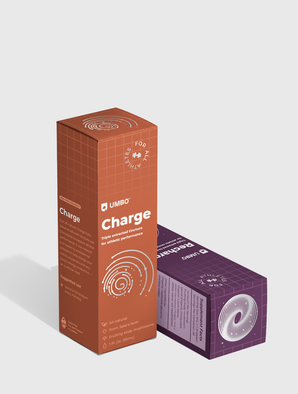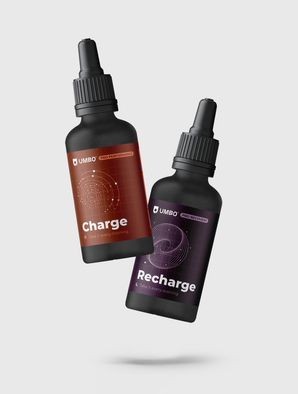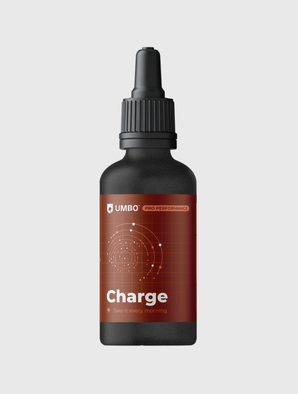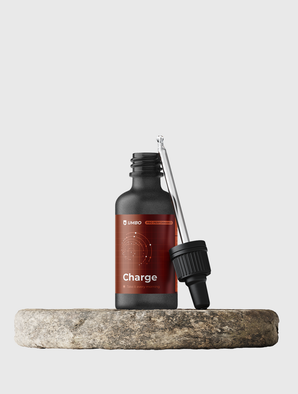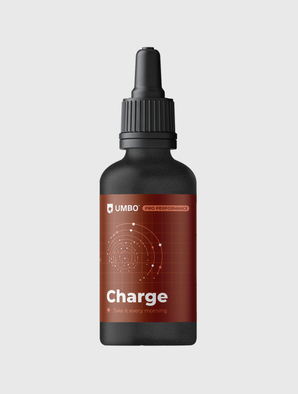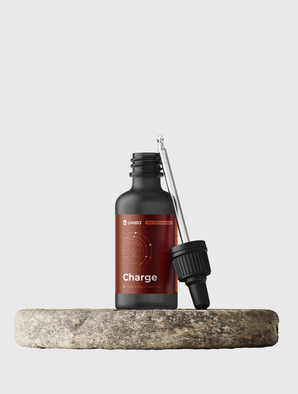Getting into functional mushrooms
Functional mushrooms have made a name for themselves as the newest health food. It seems like there is so much buzz from all corners — with chatter and loads of promises from athletes, biohackers, microdosers, wellness influencers, yogis, hippies, and foragers alike.
With all the hype comes confusion. Part of the reason is that there is still so much we do not know about mushrooms: In the most optimistic estimate, science has discovered and named only 8% of the species in the Fungi kingdom to date, meaning we only know a couple hundred thousand species of mushrooms, out of the roughly 3 million species that we think are out there in the world.
So while loads of people are talking about what mushrooms can do for our health — and rightly so — they are working with a constantly-evolving knowledge base. We are learning new things every day. For the purposes of this article, let's focus on science-backed understanding. This is about what we know works. No empty promises, no wild guesses.
Good news! Even with an incomplete understanding of the Fungi kingdom, we can say definitively that the functional mushrooms we do know are the real deal. Whether you are a pro athlete, like our founders Jake Plummer and Rashad Evans, or just looking to get healthier, we’ve got you covered. Read on to learn all about the wonderful world of functional mushrooms.
Mushrooms are a new trend, but they're old history
In recent years, we have seen a massive spike in interest in natural health and natural medicine. People started to look to nature to promote health. This concept is hardly a new one. Humans have used plants, mushrooms and countless other natural resources for healing for thousands of years. Cultures and civilizations from the Aztecs to the Egyptians to traditional Chinese medicine have been harnessing the power of mushrooms.
It of course makes sense. Today, mushrooms are widely known to be a reliable source of protein and vitamins D and B. Recent studies have shifted to exploring how mushrooms can be utilized in antibiotics, antivirals, and antidepressants. With thousands of years of research and human history to draw upon, it is no wonder that mushrooms are making a comeback in modern day.
What are functional mushrooms?
When we talk about functional mushrooms, we don't mean the white-capped ones you find in the supermarket or the ones you eat on your pizza. No, those are gourmet mushrooms.
Nor are we talking about psilocybin mushrooms — also known as "magic" mushrooms. All psychedelic mushrooms are currently illegal in the United States. They have been decriminalized in a handful of cities, which is a step forward, but they are a very long way away from being legal.
Functional mushrooms, sometimes called medicinal mushrooms, are the ones that are supercharged with nutritional value and loads of health benefits, like Reishi, Lion's Mane, and Cordyceps. You generally can't eat these mushrooms straight out of nature, because their cell walls are too tough. Still, there are a whole load of benefits people can get from mushrooms, and the benefits are generally different from species to species. They can be anything from heightened energy, improved focus, better sleep, lowered stress levels, clearer skin, improved gut health, and so many more.
See below for the health benefits of foods and dietary supplements containing each of the main species of functional mushroom.
Pro Bowl NFL quarterback Jake Plummer talks with the Macrodosing podcast about how he discovered and uses functional mushrooms:
What are adaptogenic mushrooms?
Many, but not all, functional mushrooms are considered adaptogens because they help your body handle stress better. An adaptogen is a natural substance that supports your body’s ability to adapt to physical, mental, or environmental stresses.
Certain adaptogen mushrooms, like Reishi and Lion's Mane, have compounds that work with your body to keep things in balance. When you're stressed, your body releases hormones like cortisol to manage it. Adaptogenic mushrooms help regulate those stress responses, making it easier for your body to recover and stay stable. So, if you're feeling burned out or run down, these mushrooms can help you feel more balanced and resilient over time.
Stress can take a huge toll on people. The body’s stress response is remarkably complex and involves multiple bodily systems, but our main stress mechanism is the Hypothalamic Pituitary Adrenal (HPA axis). Adaptogens primarily work by influencing our HPA axis. In doing so, adaptogens increase our resistance to stress, boost recovery and create stability in the body. Researchers have discovered that certain plants and some mushrooms from the natural world have adaptogenic properties.
Harnessing the power of functional mushrooms
Sure, functional mushrooms look like a glamorous health product from afar, but the benefits of the mushrooms are rooted in science. There are currently 2,000 species of mushrooms considered to be medicinal or edible — but only about 15 of them are recognized as "functional." Of course, like anything you eat, functional mushrooms will work differently for different people.
How UFC light heavyweight champ and hall-of-famer Rashad Evans talks with Jay Glazer of Fox Sports about how he was introduced to and uses functional mushrooms:
What you should look for when buying functional mushrooms
While the benefits of consuming functional mushrooms are clear, it is important to remember that not all mushroom products are created equal. There are a few things you need to look out for when choosing a function mushroom product, to make sure you will be able to get all the benefits that functional mushrooms promise.

1. Sourcing
A company’s sourcing method is vital to how effective the mushroom will be. Be on the lookout for products that are made with whole fruiting bodies. These are spore producing structures that support the asexual reproduction of the plant. It is also important that the mushrooms are extracted raw or whole to make sure you get all the good benefits when consumed. Organic mushrooms are usually higher quality — though some mushrooms should not be "farmed" in the traditional sense, and need to be wild-harvested.
2. Testing
Who and how the product has been tested is an important indicator of quality, ensuring you are buying a product that is the best of the best. Functional mushroom products should be tested for heavy metals, bad bacteria, mycotoxins, yeasts, molds, and pesticides.
3. Extraction process
There are lots of ways to extract the beneficial compounds from functional mushrooms. Extractions, fermentations, dried powders. There are benefits to each, and it is surely better to have some functional mushrooms in your diet at all — so pick products that work best for your personal routines and preferences. For us, the most potent will be a triple extraction, which is best able to capture the immune-boosting and adaptogenic compounds in functional mushrooms.
4. A meaningful amount
You want to take enough functional mushrooms to make a difference, but you don't want to take too much either. Depending on the source and quality of the extraction, we believe you want to look for at least 300 mg of a given functional mushroom in the product. If the dose is more than 300 mg, so much the better, but only up to a point. More than 1,000 mg starts to see diminishing returns for the average person, in our experience.
You can to read more about our intake guidelines for functional mushrooms here.
Seems to us that there are far too many products being sold today that just sprinkle in a little bit of a mushroom like Lion's Mane (say, 20 mg or 50 mg), putting that little bit in, just so they can say it's in there. They think they can fool you, only because it's trendy or they think it will sell better. While we could not be bigger fans of what Lion's Mane can do, that tiny amount is just not enough of it to do any good, if you ask us.
Key functional mushrooms and their benefits
Let’s face it, most of us would consider lowered stress levels to be a dream come true. Still, in order to get there, it is important to know which mushrooms are adaptogenic and which are medicinal. Below is a list of the most common adaptogenic mushrooms and their benefits for stress and beyond.

Chaga mushrooms and their benefits: The endurance powerhouse
Benefits: Enhanced endurance, improved recovery, immune health
All functional mushrooms contain a load of antioxidants, but Chaga has the highest levels of any superfood. It supports all-around health, but especially endurance and mid-workout recovery, helping athletes recover faster between training sessions and competitions. Read more about Chaga here.

Cordyceps mushrooms and their benefits: The natural energy source
Benefits: energy boost, increased stamina, immune health.
Known as the athlete’s mushroom, Cordyceps helps your body take in and use oxygen, fueling energy production on a cellular level. It provides a sustainable energy boost—without the jitters or crashes associated with stimulants. It also supports endurance, reduced inflammation, and quicker recovery. Read more about Cordyceps here.

Lion's Mane mushrooms and their benefits: The mind sharpener

Oyster mushrooms and their benefits: The utility player
Benefits: All-around health, packed with antioxidants and anti-inflammatories
Oysters are functional mushrooms that are a nutritional dynamo for athletes, high in fiber, beta-glucans, and essential vitamins and minerals. They're packed with antioxidants and anti-inflammatories, such as ergothioneine, that promote healthy cholesterol levels, help to reduce cellular damage, and enhance overall health. Read more about Oyster here.

Poria mushrooms and their benefits: The stealth fatigue fighter
Benefits: Fights fatigue, balances the body's systems, anti-inflammatory
Poria Sclerotia isn’t a fruiting body mushroom — think of it more like a functional mushroom truffle, waiting to emerge from underground, storing energy and goodness until the time is right. It is a powerhouse of benefits. Nutrient-dense and anti-inflammatory, it has been used to help fight fatigue and is something every athlete should include in their diet. Read more about Poria here.

Reishi mushrooms and their benefits: The queen of relaxation
Benefits: immune support, relieving stress and anxiety, improved sleep.
Known as one of the most common adaptogenic mushrooms, The "queen of mushrooms" — and sometimes called the "mushroom of immortality" — Reishi is an all-star player for de-stressing the nervous system and promoting whole-body relaxation and resilience. This is in addition to its potent ability to combat inflammation and fortify the immune system. Read more about Reishi here.

Shiitake mushrooms and their benefits: The focused playmaker
Benefits: immune health, antioxidants, heart, and liver health.
A little food for thought: Shiitake is a functional mushroom known to be a powerful brain booster. It's chock full of beta-glucans and minerals, including high concentrations of B vitamins and folate (a.k.a. energy makers) that help to turn food into energy and sharpen mental clarity. Read more about Shiitake here.

Turkey Tail mushrooms and their benefits: The second brain booster
Benefits: immune support, cellular regeneration, digestive functioning.
Turkey Tail is a functional mushroom that acts as a prebiotic to support gut health. The gut is a so-called "second brain," helping you to maintain mood and a healthy response to stress. Turkey Tail also helps the immune function, reinforcing the more than half of the body's immune cells that exist in the digestive system. Read more about Turkey Tail here.

Tremella mushrooms and their benefits: The hydration heavyweight
Benefits: Whole-body hydration and recovery
Tremella can hold up to 500 times its weight in water. So when you're thinking about staying hydrated, this is a no-brainer. Because Tremella supports whole-body hydration, it also benefits the body's joints and fascia. Not only that, it is rich in antioxidants and will bolster the immune system. Read more about Tremella here.
Formats of functional mushroom products
The most effective formats for functional mushroom products cater to convenience, versatility, and ease of use for active individuals. Here are some of the more popular formats:
- Powders: Easy to mix into smoothies, coffee, or other beverages for daily use
- Capsules: Simple and portable, great for people on the go who need precise dosing
- Tinctures: Liquid extracts that are fast-acting and easy to add to drinks or take directly
- Energy Bars: Functional mushroom-infused snacks for a quick boost of energy and nutrition. These could even be chocolate bars!
- Coffee or Tea Blends: Pre-mixed with coffee or tea for a seamless integration into daily routines
- Ready-to-Drink Beverages: Canned or bottled drinks infused with functional mushrooms for hydration and performance or recovery
Any of these formats can help you incorporate functional mushrooms into your daily routines. Just be sure to know the source, potency, and amount of mushrooms you're getting in whichever format you choose. (See the section above about factors to consider when choosing a mushroom product.)
Continue your journey with functional mushrooms
As we hope you've found here, we know from first-hand experience that functional mushrooms have huge potential to help anyone who actively uses their minds and bodies. Continue your journey with functional mushrooms with Umbo — we have a lot to offer anyone who is interested in their adaptogenic benefits.
The problem has been that there hasn't been anywhere near enough advice or guidelines for how to understand and use functional mushrooms. Until now. We wrote the playbook for mushrooms. Literally.
Download your free copy of the 60-page Functional Mushroom Playbook here as an e-book.
And continue reading loads of informative and stimulating articles about functional mushrooms on this website.



